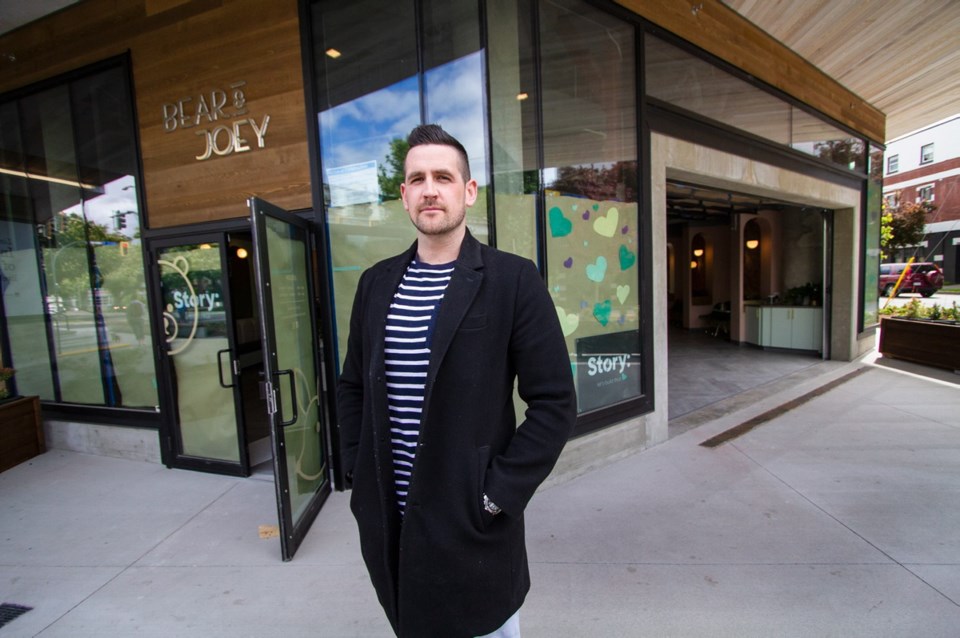Peter Wood is still trying to figure out if preparing to open a new restaurant in the midst of a global pandemic is crazy or a stroke of genius.
The transplanted Australian has been working behind papered glass since December to build out Bear & Joey, a new restaurant in Abstract’s Black and White building at Cook and Meares streets.
With an opening date just weeks away, it might prove to be a bit of both. “I’m still trying to figure that out,” Wood said, noting that at first, it was all about positive thinking, which evolved into thinking “it may not be a disaster.”
Wood, a restaurateur who came to Victoria from Sydney two and a half years ago with his wife, Stephanie, an Island native, concedes the timing is not ideal.
But he said they have built some buzz about their venture online, all the while desperately changing the business model to suit the circumstances. “We had always planned a take-away trade, but this wasn’t what we forecasted, for sure,” he said. “It definitely changes the model.”
When Bear & Joey does open, it will be a takeout-only restaurant at first, despite its 2,500-square-foot space.
The 70-seat dining room and southern-facing patio space, which is awash in sun much of the day, will be closed until pandemic-related restrictions are relaxed.
“There are hurdles to opening a restaurant or any business from scratch,” said Wood, with acknowledged understatement.
“To get to the point of being ready to rock and roll and then a global pandemic hits — well, at the end of the day, that’s life … something is always going to come along.”
Wood hopes the restaurant, which focuses on coffee and vibrant, healthy food that travels well, will become a meeting spot in the neighbourhood, while attracting customers from around the city.
While the pandemic continues, they intend to offer a one-way takeout service — customers will come in one door, pick up their food and head out the back door, so they don’t have to cross paths with others.
Wood said they did consider not opening, but the pressure of overhead costs and financial commitments convinced them it was a necessity.
“We decided we’d only open if we could guarantee the safety of our staff and customers,” he said. That means there will be a small staff on hand, plexiglass around all service areas and hand-sanitizer stations dotted around the space. “You either adapt, or you don’t and pull the pin,” he said.
That’s the kind of thinking that led to Big Wheel Burger opening its fourth location during the COVID-19 outbreak.
Founder Calen McNeil said the decision to open the doors at its Nanaimo location two weeks ago is all about entrepreneurial spirit. “It’s about adapting, conquering and problem-solving,” he said. “And it’s about: How do we figure this out and how quickly can we do it?”
The company had planned the expansion for months and was near the end of renovations for the space when the pandemic hit and the rules changed.
Instead of shuttering the store and waiting it out, Big Wheel opened and built on what it had been doing at its Victoria locations.
McNeil said he’s gone from “being completely terrified” to saying: “Wow, this is working, it’s good.”
The decision was to go with a takeout model and use the company’s existing infrastructure, including an app to allow ordering and paying and delivery in some areas.
“Opening Nanaimo was scary, but I think the response we’ve seen so far and being able to do it safely has been great — the numbers have been through the roof,” he said. “And we’re doing it one customer at a time and six feet apart.”
McNeil said he never would have predicted that a takeout-only model would be viable. “But I think we are prepared to stay like this indefinitely and still provide good-paying jobs and food support for the community.”



